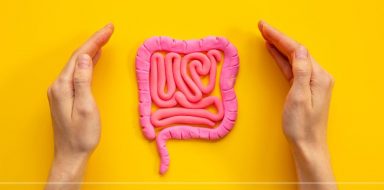The Effects of Alcohol on Bladder Control
While the exact cause of overactive bladder is unknown, some foods and drinks appear to be more likely to irritate the bladder and aggravate the symptoms. On the top of the list of bladder irritants is alcohol, followed closely by caffeine-based products. Let’s review how your bladder works, how alcohol impacts overactive bladder and what other drinks or foods you should avoid to keep your bladder healthy and happy.
How the Bladder Works
Your kidneys help filter waste products from the blood. They make urine, which is passed down to the bladder. The bladder is situated in the lower part of the abdomen and acts as a temporary store for the urine. It has muscles that allow it to expand as it fills with urine.
When the bladder starts to fill up, the nerves that control it send signals telling you to go to the toilet. This simple mechanism does not work properly in cases of overactive bladder, leading to the characteristic symptoms.
How Alcohol Influences the Urinary System
There are a few ways in which alcohol impacts overactive bladder symptoms. Firstly, it is a liquid and therefore will make you urinate more. It is also a diuretic, meaning that will make your body eliminate more fluids/urine from the body and do so faster than regular liquids and forcing the bladder to empty more often. And thirdly, alcohol irritates the already overactive and sensitive bladder, and may also have an impact on how the kidneys work.
Additionally, the nerves that control the bladder emptying process may be affected by alcohol, thus making the bladder fill up without creating the sensation you need to urinate. As a result, leakages will occur. Lastly, alcohol reduces the quality and quantity of your sleep and makes you more likely to wake up and go to the washroom at night.
This article will explore colon cancer drinks to avoid, looking at the worst offenders. Read on to learn more about these drinks.
Different types of alcohol will create different problems. Among alcoholic beverages beer seems to cause more problems, compared with wine or hard liquors.
If you drink more than that occasional glass of wine on the weekend, you should consider cutting down on alcohol. Not only your bladder will function better, but your whole body will be healthier. Set up small goals (i.e., drinking a few drinks less every week) and keep track of any alcoholic beverage you have.
Count and measure the drinks, especially when drinking at home and you have a full bottle available. One standard drink is 12 ounces of beer, 1.5 ounces of spirits or 5 ounces of wine. Avoid “triggers” that make you more likely to drink – like certain people or certain places. Finally, try to eat some food with fat when you drink alcohol. This way the alcohol will be slower absorbed in the body, and therefore less irritating.
Alcohol Is Not the Only Problem
Reducing or even eliminating alcohol from your diet is a good step towards better management of your OAB, but that alone is not enough. Other drinks irritate your bladder and cause aggravation of your symptoms.
Like alcohol, caffeine is a diuretic. It relaxes the muscles that control the bladder and thus will aggravate the symptoms of urgency and frequency. If consumed in excess and/or late in the day, caffeine will also interfere with your sleep, creating similar problems during the night.
If you go cold turkey and completely cut caffeine out, you may experience withdrawal symptoms such as headaches, irritability and drowsiness. The best way to cut down on coffee is to gradually reduce its consumption: decrease the number of cups you drink during the day, combine full-strength coffee with decaf or switch to green tea.
Fruit juices are usually acidic (i.e. orange, grapefruit) and thus will irritate the bladder and make you have to urinate more often. Cranberry juice is known to be healthy and help prevent infections, but is also irritating to the bladder and is best avoided.
When it comes to herbal teas, different plants will have different effects. Some have strong diuretic properties and should be avoided. Chamomile and ginger teas are safe choices due to their anti-inflammatory qualities, as long as they are consumed in moderation.
Added sugar and artificial sweeteners can also trigger OAB symptoms. Bubbly drinks are carbonated and loaded with sugar, encouraging the growth of bacteria and therefore the chances of infections. Many of them contain caffeine as well, and irritate the bladder, increasing the risk of urgency and frequency.
Keeping Hydrated
Not drinking enough, can also be detrimental because the urine becomes more concentrated and more irritating for the bladder. But how much is too much? Rather than focus on those 8-10 glasses of water a day you’ve heard is healthy, you should check the color of the urine when you go to the washroom. If is very light yellow or white – and clear, you had enough water. If it's darker, have an extra glass of water.
Do you have to eliminate alcohol from your diet or just cut down on it? Some people are OK having that occasional drink during the weekend. If you are not sure, try to not drink any alcohol for one week. If your OAB symptoms improve significantly, it would be a great idea to avoid alcohol altogether. If your symptoms don’t change, it means that you can probably enjoy that drink – try to have wine or 40% spirits rather than beer, along with some food and extra water.







